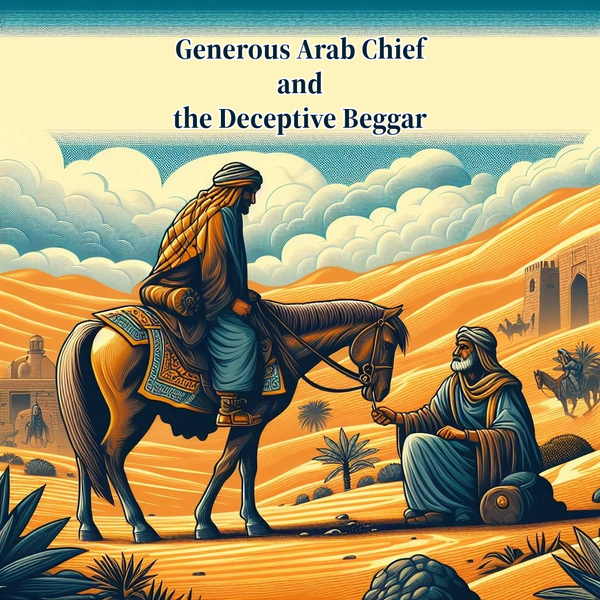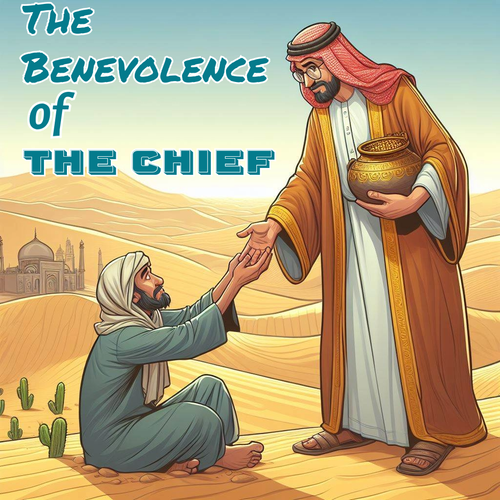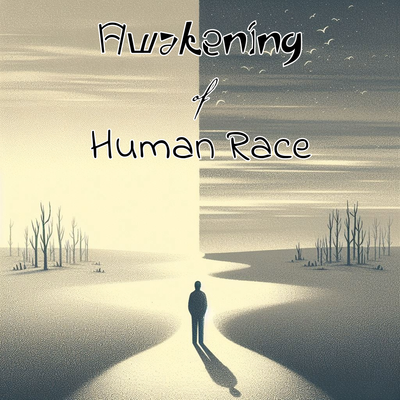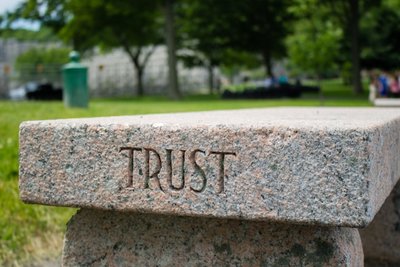

Generous Arab Chief and the Deceptive Beggar
This is a story from ancient times. There was a famous Arab chief who was known for his generosity towards guests, a common trait among Arabs. Once, he was traveling outside his tribe on his beautiful and noble horse. On the way, he saw a very thin and weak-looking man lying hungry and thirsty in the open desert. Seeing this, the Arab chief felt compassion in his heart and decided to help the poor man. He descended from his horse and approached the man.
The chief asked him his name, but due to weakness, the man could not respond. The chief fetched water from his flask, gave it to him, fed him, and offered him assistance to accompany him. The poor man was so weak that he couldn't even stand on his feet. The chief suggested that he should ride on the horse behind him, saying they would soon reach the city.
However, the man said that he didn't have enough strength to climb up. He suggested the chief to get down and let him ride, saying, "You get down and lift me up." The chief found this suggestion reasonable. He got down, lifted the man, and helped him mount the horse.
As soon as the man mounted the horse, he suddenly transformed into his true form. With great cunning and deceit, he spurred the horse and rode away at full speed. When the chief realized that he had been deceived by this impostor, he called out to him. When he returned, the chief said to him,
"Look, you can take this horse with you. But when you sell it in the city, people will recognize that this is the magnificent horse of such and such tribe's chief. Then, if they find out that you deceived me and took the horse away from me in the desert, they will come back to helping needy travelers in the desert. So, you must tell them that the chief gave you this horse as a gift. Go, I have given you this horse as a gift. But never again assume the guise of a helpless and desperate man. Your actions might cause harm to genuine needy people, and others might stop helping them out of fear."
Hearing this, the cunning thief took the stolen horse and left. And the story ends here.
فریبی بھکاری اور فراخ دل عربی سردار
پرانے وقتوں کی بات ہے. ایک مشہور عرب قبیلے کا سردار ہوا کرتا تھا. عربوں کی مہمان نوازی تو یوں بھی بہت مشہور ہے. ایک دفعہ وہ اپنے قبیلے سے باہر کسی سفر پر اپنے خوبصورت اور عمدہ قسم کے گھوڑے پر جا رہا تھا. راستے میں کیا دیکھتا ہے کہ ایک نہایت لاغر نحیف قسم کا شخص کھلے صحرا میں بھوکا پیاسا پڑا ہوا ہے. یہ دیکھ کر اس عرب سردار کے دل میں رحم آ گیا اور اس نے اس غریب آدمی کی مدد کرنے کا سوچا. وہ اپنے گھوڑے سے نیچے اترا اور اس آدمی کے پاس آیا.
سردار نے اس سے اس کا نام نسب پوچھا مگر وہ آدمی نقاہت کی وجہ سے کچھ جواب نہ دے سکا. سردار نے اپنے کجاوہ میں سے پانی لا کر اسے پلایا. اسے کھانا کھلایا. اور اسے سہارا دے کر اپنے ساتھ جانے کی پیشکش کی. وہ غریب آدمی اپنے پیروں پر کھڑا بھی نہیں ہو پا رہا تھا. سردار نے اسے کہا کہ میرے پیچھے گھوڑے پر سوار ہو جاؤ. ہم تھوڑی ہی دیر میں شہر تک پہنچ جائیں گے.
لیکن وہ شخص کہنے لگا کہ میرے اندر اتنی طاقت نہیں ہے کہ میں اوپر چڑھ سکوں. تم ایسا کرو کہ نیچے اترو اور مجھے چڑھا دو. سردار کو یہ تجویز معقول لگی. وہ نیچے اترا اور اس شخص کو اپنے عمدہ گھوڑے پر سہارا دے کر سوار کر دیا.
گھوڑے پر سوار ہوتے ہی یکدم شکل و صورت سے مسکین نظر آنے والا شخص اپنے اصل روپ میں آگیا. نہایت عیاری اور مکاری کے ساتھ ایڑ لگا کر گھوڑا سرپٹ دوڑانے لگا. جب سردار نے جان لیا کہ یہ بہروپیا ہے تو اسے آواز دے کر بلایا. وہ واپس آیا تو سردار نے اس سے کہا:
دیکھو یہ گھوڑا تم لے جا سکتے ہو. مگر جب تم اسے شہر جا کر بیچو گے تو لوگ پہچان جائیں گے کہ یہ فلاں قبیلے سے سردار کا نہایت شاندار گھوڑا ہے. پھر اگر انہیں اس بات کا پتہ چلے گا کہ کیسے صحرا میں تم مجھے دھوکہ دے کر مجھ سے گھوڑا لوٹ کر لے گئے ہو تو آئندہ عرب قبیلے صحرا میں مجبور مسافروں کی مدد کرنے سے باز آجائیں گے. اس لیے تم انہیں یہ بتانا کہ سردار نے مجھے یہ گھوڑا بطور تحفہ دیا ہے. جاؤ میں نے تمہیں یہ گھوڑا ہدیہ کر دیا. مگر آئندہ کبھی مجبور اور بے بس آدمی کا روپ دھار کر مت آنا. تمہاری وجہ سے کسی غریب کا حق مارا جائے گا اور لوگ اس ڈر سے حقیقی غریبوں اور مجبوروں کی مدد کرنا بھی چھوڑ دیں گے.
یہ سن کر وہ چالاک چور گھوڑا لے کر چلا گیا. کہانی ختم ہوئی.


The Benevolence of the Chief
When I read this story, I found myself pondering why the chief did what he did. He could have captured and even killed the thief, or he could have lamented his misfortune and reclaimed his valuable horse. But he prioritized national interests over personal gain.
Because if people were to find out that even the most helpless-looking individuals could turn out to be thieves, no one would ever help a needy person again. Well, this is a story from a time when people traveled for days to reach from one city to another. There were no modern means of communication, so such news couldn't spread among the common folk.
But in today's fast-paced world, where news spreads like wildfire, if such an incident were to occur, everyone would immediately know. And the outcome would be exactly as the Arab chief's words predicted: if people found out that I wanted to help you and you deceived me, they would stop helping needy individuals out of fear.
سردار کی نیکی
میں نے جب یہ کہانی پڑھی تو میں سوچ میں پڑ گیا کہ آخر اس سردار نے ایسا کیوں کیا؟ وہ چاہتا تو اس چور کو پکڑ کر قتل کر سکتا تھا یا اپنی مظلومیت کا رونا رو کر اپنا مال اپنا قیمتی گھوڑا واپس لے سکتا تھا. مگر اس نے اپنے ذاتی فائدے پر قومی فائدے کو ترجیح دی.
کیونکہ اگر لوگوں کو پتہ چل جاتا کہ مجبور و بے بس آدمی کے روپ میں لٹیرے بھی ہو سکتے ہیں، تو کبھی کوئی کسی مجبور آدمی کی مدد نہ کرتا. خیر یہ تو اس زمانے کی بات ہے جب کئی کئی دنوں تک لوگ سفر کرکے ایک شہر سے دوسرے شہر پہنچا کرتے تھے.
جدید ذرائع مواصلات نہ تھے اس لیے عام لوگوں تک یہ خبر نہیں پہنچ سکی تھی مگر آج کے تیز تیز دور میں جہاں پل پل کی خبر پوری دنیا میں جنگل کی آگ کی طرح پھیل جاتی ہے، اگر ایسا کوئی واقعہ پیش آجائے تو فوراً ہر بندہ کو پتہ چل جاتا ہے اور نتیجہ وہی نکلتا ہے جو عرب سردار کے الفاظ تھے کہ اگر لوگوں کو پتہ چل جائے کہ میں نے تمہاری مدد کرنا چاہی اور تم نے مجھے لوٹ لیا تو اس خوف سے لوگ بے بس لوگوں کی مدد کرنا چھوڑ دیں گے.


Awakening of Human Race
Think about it, centuries have passed, but human nature remains where it was centuries ago. Today, when we observe around us, especially if I talk about my country Pakistan, even in our society, the distinction between the real poor and the impostor poor is disappearing. Searching for the deserving has become synonymous with searching for a needle in a haystack. Today, every person feels a pang of doubt about everyone and everything, fearing that the next person might be defrauding me.
It's not a very old story. In the same country, Pakistan, there was a time when people openly helped each other. They used to assist each other in times of adversity. If a stranger traveler was seen on the road, they would cooperate with him, offer hospitality, and help him reach the nearest city. But then came those who, taking advantage of this sense of compassion, started robbing people of their lives and belongings. The roads became unsafe.
If someone saw a helpless person, they never risked helping him. Previously, if someone appeared helpless while traveling, people would stop and help him. Now, if someone is seen, they immediately pass by, fearing that he might be a fraud. And that's the reality. Many of my friends have experienced such incidents where they were moved by compassion to help someone, but the next person rewarded them by taking them to a desolate place and robbing them. These incidents, heard over and over again, gradually instill feelings of compassion, brotherhood, and love in a person, and the result is a hardened society. When people's trust is lost once, regaining trust becomes very difficult.
انسانی ذات کی بیداری
ذرا سوچیں کتنی صدیاں بیت گئیں مگر آج بھی انسانی فطرت وہیں پر کھڑی ہے جہاں پر صدیوں پہلے تھی. آج ہم اپنے اردگرد میں جب مشاہدہ کرتے ہیں. خصوصاً اگر میں اپنے ملک پاکستان کی بات کروں تو آج ہمارے معاشرے میں بھی اصل غریب اور بہروپیہ غریب کا فرق ختم ہوتا چلا جا رہا ہے. اصل مستحق کو تلاش کرنا جوئے شیر لانے کے مترادف ہو گیا ہے. آج ہر شخص کو ہر آن ہر کسی کے بارے میں یہ دھڑکا لگا رہتا ہے کہ کہیں اگلا شخص میرے ساتھ فراڈ نہ کر رہا ہو.
ایسا نہ ہو کہ میں اس کی مدد کروں اور بدلے میں یہ مجھے نقصان پہنچا دے. زیادہ پرانی بات نہیں. اسی ملک پاکستان میں ایک زمانہ ایسا بھی تھا جب لوگ کھلے دل سے دوسروں کی مدد کیا کرتے تھے. مصیبت میں دوسروں کے کام آیا کرتے تھے. کوئی اجنبی مسافر راستے میں نظر آتا تو اس کے ساتھ تعاون کرتے. اس کی مہمان نوازی کرتے. اسے قریبی شہر پہنچا دیتے. لیکن پھر ایسے لوگ آگئے جنہوں نے اس احساس ہمدردی کا ناجائز فائدہ اٹھاتے ہوئے اس کے ذریعے لوگوں کا جان و مال لوٹنا شروع کر دیا. راستے غیر محفوظ ہو گئے.
اگر کسی شخص کو کوئی مجبور و لاچار شخص نظر بھی آجائے تو وہ ہرگز اس کی مدد کرنے کا رسک نہیں لیتا. پہلے پہل یہ ہوتا تھا کہ اگر راستے میں جاتے ہوئے نظر آجاتا کہ کوئی شخص مجبور ہے تو لوگ رک کر اس کی مدد کرتے تھے اب اگر کوئی نظر آجائے تو فوراً تیزی سے گزر جاتے ہیں اس ڈر سے کہ کہیں وہ کوئی لٹیرا نہ ہو اور یہ حقیقت ہے. میرے اکثر دوستوں کے ساتھ ایسے واقعات ہو چکے ہیں کہ انہوں نے جذبہ ہمدردی کے تحت کسی کی مدد کی مگر اگلے نے انہیں مدد کا یہ صلہ دیا کہ گن پوائنٹ پر ویرانے میں لے جا کر لوٹ لیا. یہ واقعات سن سن کر انسان کے اندر سے رفتہ رفتہ جذبہ ہمدردی، بھائی چارہ، اخوت و محبت جیسی چیزیں ہوا ہو جاتی ہیں اور نتیجۃ ایک سخت گیر معاشرہ وجود میں آجاتا ہے. جب لوگوں کا اعتماد ایک دفعہ ختم ہو جاتا ہے تو پھر دوبارہ اعتماد جیتنا بہت مشکل ہوتا ہے.


Lesson: Honesty and Trust
The purpose of analyzing this story is that in the tales of old times, there are lessons for us. We often overlook these stories as mere tales, but they hold profound lessons for us. We should learn from these stories. Whatever field we go into, whatever work we do, we should do it with complete honesty. We should not deceive others. Otherwise, we might end up suffering losses.
Just like in the story of the shepherd and the wolf, where the shepherd had to face the consequences. When he initially told the villagers that the wolf had come, everyone ran to help him. But there was no wolf. He repeated the same action the next day, and some people still came. But there was no wolf. The shepherd made a joke out of them.
Then on the third day, when the wolf actually came, the shepherd kept calling for help, but no one came to his aid because people had lost trust in him. As a result, the wolf devoured him. Therefore, if you deceive people today and think you will get away with it, it may not be the case tomorrow. You could be in trouble someday, and then no one will help you. Help others, and you will receive help.
سبق: ایمانداری اور اعتماد
اس کہانی پر تجزیہ کرنے کا مقصد یہ ہے کہ پرانے زمانے کی کہانیوں میں ہمارے لیے سبق ہوتا ہے. ہم ان کہانیوں کو صرف کہانی سمجھ کر نظر انداز کر دیتے ہیں مگر ان میں ہمارے لیے بہت بڑا سبق پوشیدہ ہوتا ہے. ہمیں ان کہانیوں سے سبق سیکھنا چاہیے. ہم کسی بھی فیلڈ میں جائیں، کوئی بھی کام کریں تو پوری ایمانداری سے کریں. دھوکہ دہی نہ کریں. ورنہ پھر نقصان سے دوچار ہونا پڑے گا.
جیسے چرواہے اور بھیڑیے کی کہانی میں چرواہے کو سامنا کرنا پڑا. جب اس نے پہلے دن بستی والوں سے کہا کہ بھیڑیا آگیا ہے تو سب اس کی مدد کو دوڑے. مگر وہاں کچھ نہ تھا. دوسرے دن بھی اس نے یہی حرکت کی. کچھ لوگ پھر بھی گئے. مگر وہاں کچھ نہ تھا. چرواہے نے ان کا مذاق اڑایا.
پھر تیسرے دن سچ مچ میں بھیڑیا آگیا، چرواہا مدد کے لیے چلاتا رہا مگر اس کی مدد کے لیے کوئی نہ پہنچا کیونکہ لوگوں کا اس پر سے اعتماد اٹھ چکا تھا. نتیجہ یہ ہوا کہ بھیڑیا اسے کھا گیا. اس لیے اگر آپ آج لوگوں کو دھوکہ دے کر یہ سوچتے ہیں کہ آپ بچ جائیں گے تو ہرگز ایسا نہیں ہوگا. کل کو آپ پر بھی مجبوری آ سکتی ہے. تب آپ کی بھی کوئی مدد نہیں کرے گا. مدد کیجیے مدد لیجیے.

Join Binance through THIS LINK for 10% off trading fees! Let's save together!
ٹریڈنگ فیس میں 10% چھوٹ کے لیے اس لنک کے ذریعے بائننس میں شامل ہوں! آئیے مل کر بچائیں!

I will reply to your lovely comments before publishing my next blog. Got sick, taking medications.
(Comment upvoted for visibility.)
This post has been manually curated by @bhattg from Indiaunited community. Join us on our Discord Server.
Do you know that you can earn a passive income by delegating to @indiaunited. We share more than 100 % of the curation rewards with the delegators in the form of IUC tokens. HP delegators and IUC token holders also get upto 20% additional vote weight.
Here are some handy links for delegations: 100HP, 250HP, 500HP, 1000HP.
100% of the rewards from this comment goes to the curator for their manual curation efforts. Please encourage the curator @bhattg by upvoting this comment and support the community by voting the posts made by @indiaunited.
With time trust is decreasing and in the case of helping others, we need to think several times thinking if the person deserves help or if he is just pretending. In the story, what if the deceptive beggar took it as a motivation and kept continuing it? wouldn't it be better if he was behind the prison? At least many people would think several times before doing that kind of act because of punishment. I just tried to see the same incident from a different perspective.
I understand your point of view but in the current time people think your kindness is a weakness and it's pathetic.
!LUV
dlmmqb, intishar sent you LUV. 🙂 (1/3) tools | trade | connect | wiki | daily
Made with LUV by crrdlx.
The sardar's heart was full. I hope that he tried to understand the thief's circumstances later on and perhaps even searched for him to provide him with employment. Often, in such incidents, forgiveness can lead to profound changes in people. I don't know what happened next with that thief. It's a historical event, so I prefer not to speculate, but I have hope for the best.
I understand your point of view. In history, people often forgive in such situations. For instance, when Prophet Muhammad (ﷺ) conquered Mecca, he forgave everyone. Then those same people embraced Islam.
Another incident occurred when Pakistan returned an Indian Air Force pilot who was spying in Pakistan back to India, conveying a message of peace to the world.
Many things have happened in Pakistan and Bangladesh. I hope that Bangladeshis don't harbor hatred towards Pakistani people. I cannot change what has happened, and I am ashamed of it, but I did not commit those acts. Therefore, it would be unfair for the current generation to hold me responsible for their grievances.
I hope this addition context helps you understand my pov.
It's fascinating how the actions of the Arab chief centuries ago still resonate with the challenges we face today. Your reflection on trust, compassion, and the changing dynamics of society feels incredibly relevant. It's a reminder of how delicate these values are, especially in a world where news spreads instantly and fear can easily overshadow goodwill. Thanks for sharing this insightful piece
I'm delighted to hear that my content fascinated you and resonated with you. I'll strive to keep producing insightful blogs that you can find relevant. Thank you for your appreciation and kind words.
I think nowadays it is too difficult to trust anyone. When you trust someone he thinks that you can't live without them and they are too important all above they cheated on us. But the way the Arab sardar helped him and also gave his horse as a gift so that he would not come in danger. Uff what a fantastic 😊 story of kindnesses. But I think we should change our thinking by guiding the people as you did through your story.
Gaining trust can indeed be difficult, but those who manage to do so can bring peace to both themselves and others. I'm pleased that you found the sardar's act of giving his horse as a gift admirable. I hope to continue writing content that resonates with you in the future.
What an amazing piece of writing to make us understand the importance of concepts in old stories. There are a lot out there which we used to read for fun but had great meanings inside
It's good to hear that you found something new to learn. The stories may be old, but the lessons they contain are timeless and always fresh.
No doubt, you wrote about a bitter truth of our society. If such incidents happened with people, they wouldn't be willing to help out the actual needy people.
By reading your story, an incident flashed in my mind. In 2019, my mother used to travel about 127 km on daily basis for a job. In the winter morning, one day she came across an old man who was shivering with cold, in the state of need. As she stopped the car to help him, he brought out a knife. But, luckily, the engine of car was working, she accelerate the speed and reaced out her college. From that day, she decided not to stop, no matter what happens.
From these sort of incidents, people restrain from helping others.
I'm glad you shared your mother's story with me. It was a meaningful addition to our conversation. Unfortunately, due to certain individuals in society, even kind-hearted people like your mother can be hesitant to offer help.
Sad but true.
In my town there was a time when if you saw someone lying on the street you would go over and see if they need help. At this time the person is probably using drugs and more likely to harm you than accept help. As such I've become jaded to helping random strangers as its risky business.
Knowing where to give and where to help has become increasingly difficult. However, it is still important to do. But when giving best to understand that once the gift is given it may be used for good or for bad...but it is the giving that is beneficial to the giver. If it is misused it is done at the detriment of the receiver.
Once I give a gift I hope that it will be used wisely but once I give a gift the item is no longer mine (it was gifted) so why get upset over something that isn't mine anymore :)
Thanks for the post
I'm glad you took the time to read my blog. Your valuable time and attention mean a lot. Your simple lifestyle to avoid overthinking and excessive worry is the secret to your happiness.❤️